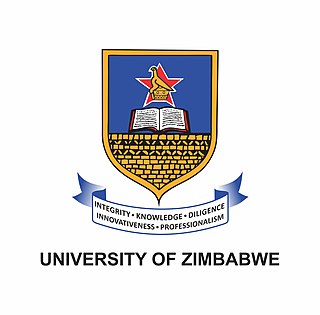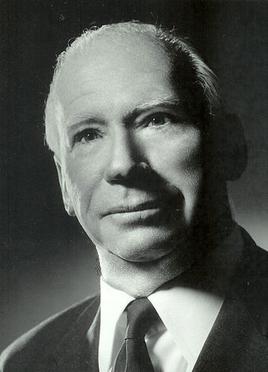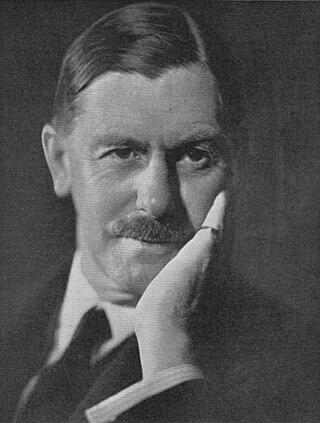
Rhodesia, officially from 1970 the Republic of Rhodesia, was an unrecognised state in Southern Africa from 1965 to 1979, equivalent in territory to modern Zimbabwe. Rhodesia was the de facto successor state to the British colony of Southern Rhodesia, which had been self-governing since achieving responsible government in 1923. A landlocked nation, Rhodesia was bordered by Botswana to the southwest, Mozambique to the east, South Africa to the south, and Zambia to the northwest. From 1965 to 1979, Rhodesia was one of two independent states on the African continent governed by a white minority of European descent and culture, the other being South Africa.

Northern Rhodesia was a British protectorate in Southern Africa, now the independent country of Zambia. It was formed in 1911 by amalgamating the two earlier protectorates of Barotziland-North-Western Rhodesia and North-Eastern Rhodesia. It was initially administered, as were the two earlier protectorates, by the British South Africa Company (BSAC), a chartered company, on behalf of the British Government. From 1924, it was administered by the British Government as a protectorate, under similar conditions to other British-administered protectorates, and the special provisions required when it was administered by BSAC were terminated.

Southern Rhodesia was a landlocked self-governing British Crown colony in southern Africa, established in 1923 and consisting of British South Africa Company (BSAC) territories lying south of the Zambezi River. The region was informally known as south Zambesia until annexed by Britain at the behest of Cecil Rhodes's British South Africa Company, for whom the colony was named. The bounding territories were Bechuanaland (Botswana), Northern Rhodesia (Zambia), Portuguese Mozambique (Mozambique), and the Transvaal Republic.

The University of Zimbabwe (UZ) is a public university in Harare, Zimbabwe. It opened in 1952 as the University College of Rhodesia and Nyasaland, and was initially affiliated with the University of London. It was later renamed the University of Rhodesia, and adopted its present name upon Zimbabwe's independence in 1980. UZ is the oldest university in Zimbabwe.

Rhodesia's Unilateral Declaration of Independence (UDI) was a statement adopted by the Cabinet of Rhodesia on 11 November 1965, announcing that Rhodesia a British territory in southern Africa that had governed itself since 1923, now regarded itself as an independent sovereign state. The culmination of a protracted dispute between the British and Rhodesian governments regarding the terms under which the latter could become fully independent, it was the first unilateral break from the United Kingdom by one of its colonies since the United States Declaration of Independence in 1776. The UK, the Commonwealth, and the United Nations all deemed Rhodesia's UDI illegal, and economic sanctions, the first in the UN's history, were imposed on the breakaway colony. Amid near-complete international isolation, Rhodesia continued as an unrecognised state with the assistance of South Africa and Portugal.
The Australian honours and awards system refers to all orders, decorations, and medals, as instituted by letters patent from the Monarch of Australia and countersigned by the Australian prime minister at the time, that have been progressively introduced since 14 February 1975. The Australian honours and awards system excludes all state and local government, and private, issued awards and medals.

The prime minister of Rhodesia was the head of government of Rhodesia. Rhodesia, which had become a self-governing colony of the United Kingdom in 1923, unilaterally declared independence on 11 November 1965, and was thereafter an unrecognized state until 1979. In December 1979, the country came under temporary British control, and in April 1980 the country gained recognized independence as Zimbabwe.

Sir Edgar Cuthbert Fremantle Whitehead, was a Rhodesian politician and statesman who served as Prime Minister of Southern Rhodesia from 1958 to 1962. He had a long and varied political career, serving as a longstanding member of the Southern Rhodesian Legislative Assembly and in a variety of minister posts over the course of nearly three decades. simultaneously serving in a variety of government position posts. His work was frequently interrupted by recurring health problems; he suffered from poor eyesight and later experienced deafness whilst in office. An ally of Sir Roy Welensky, he was Prime Minister of Southern Rhodesia from 1958 to 1962. His government was defeated in the 1962 general election by the Rhodesian Front.

The Rhodesian African Rifles (RAR) was a regiment of the Rhodesian Army. The ranks of the RAR were recruited from the black African population, although officers were generally from the white population. The regiment was formed in May 1940 in the British colony of Southern Rhodesia.

The Governor of Southern Rhodesia was the representative of the British monarch in the self-governing colony of Southern Rhodesia from 1923 to 1980. The Governor was appointed by The Crown and acted as the local head of state, receiving instructions from the British Government.
The Rhodesian honours system was established at the time that Rhodesia unilaterally declared itself a republic in March 1970, when a system of military and civil decorations and awards was instituted by Presidential Warrant in November 1970.
Prior to 1946 the New Zealand armed forces received honours of the United Kingdom, including military decorations and campaign medals. Since the end of World War 2 there have been constant moves towards an independent New Zealand honours system. This has resulted in a new system of New Zealand honours, gallantry and bravery awards, and campaign medals.
The Rt Hon. Sir Robert Clarkson Tredgold, KCMG, PC, was a Rhodesian barrister, judge and politician.

The Rhodesia Medal was initiated by the British Government in consultation with Australia, New Zealand, Fiji and Kenya, whose forces took part in Operation AGILA. The role of the multi-national force was to keep peace between 22,000 guerrilla fighters and the Rhodesian forces during the ceasefire and run-up to the 1980 elections.

Jack William Pithey was a Rhodesian politician who served as the unrecognised state's Acting President between 1 November 1978 and 5 March 1979. He was also the President of the Senate of Rhodesia from 1970 to 1978 having previously been Member of Parliament for the Avondale constituency in north-west Salisbury between 1964 and 1970.

The Rhodesia Regiment (RR) was one of the oldest and largest regiments in the Rhodesian Army. It served on the side of the United Kingdom in the Second Boer War and the First and Second World Wars and served the Republic of Rhodesia in the Rhodesian Bush War.
Sir John Moore Caldicott was a Rhodesian government minister.

Godfrey Martin Huggins, 1st Viscount Malvern, was a Rhodesian politician and physician. He served as the fourth Prime Minister of Southern Rhodesia from 1933 to 1953 and remained in office as the first Prime Minister of the Federation of Rhodesia and Nyasaland until October 1956, becoming the longest serving prime minister in British Commonwealth history, until 1961.












